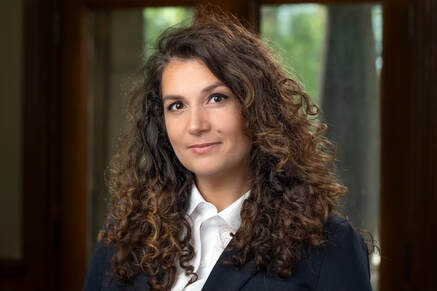PI Mingarelli
|
Prof. Chiara M. F. Mingarelli is a gravitational-wave astrophysicist and assistant professor of physics at Yale University. She is also a guest researcher at the Flatiron Institute's Center for Computational Astrophysics (CCA). Previously, she was an assistant professor at the University of Connecticut from 2020-2023, and an associate research scientist at CCA. Prof. Mingarelli completed two postdoctoral fellowships: she was a Marie Curie International Outgoing Fellow at the California Institute of Technology, and at the Max Planck Institute for Radio Astronomy, and a Flatiron Research Fellow at CCA. |
Research Group
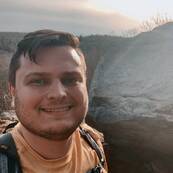
Andrew Casey-Clyde
Joined 2019
PhD Candidate
Andrew Casey-Clyde’s research is focused on multimessenger astrophysics with nanohertz gravitational waves. He combines quasar observations with information from the gravitational wave background to constrain supermassive black hole binary (SMBHB) populations. He is also interested in synthesizing electromagnetic and gravitational wave information to help direct targeted searches for continuous waves from individual SMBHBs. He hopes we can better understand the relationship between quasars, galaxy mergers, and SMBHBs by combining as many sources of information as possible.
Google Scholar Page
Joined 2019
PhD Candidate
Andrew Casey-Clyde’s research is focused on multimessenger astrophysics with nanohertz gravitational waves. He combines quasar observations with information from the gravitational wave background to constrain supermassive black hole binary (SMBHB) populations. He is also interested in synthesizing electromagnetic and gravitational wave information to help direct targeted searches for continuous waves from individual SMBHBs. He hopes we can better understand the relationship between quasars, galaxy mergers, and SMBHBs by combining as many sources of information as possible.
Google Scholar Page
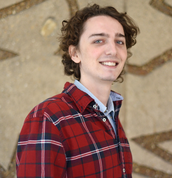
Bjorn Larsen
Joined 2021
PhD student
Bjorn is currently working on creating and fitting Bayesian Gaussian Process models of noise from the interstellar and interplanetary medium for pulsars in IPTA DR3. Once IPTA DR3 is completed, Bjorn will be using these noise models to search for and characterize the gravitational wave background using the full array of pulsars.
Google Scholar Page
Joined 2021
PhD student
Bjorn is currently working on creating and fitting Bayesian Gaussian Process models of noise from the interstellar and interplanetary medium for pulsars in IPTA DR3. Once IPTA DR3 is completed, Bjorn will be using these noise models to search for and characterize the gravitational wave background using the full array of pulsars.
Google Scholar Page

Qinyuan Zheng
Joined 2024
PhD Candidate
Qinyuan Zheng’s research has two branches. On the formal side, he is interested in using effective field theory to understand the scattering processes involving gravitational bound systems, which could reveal new insights including potential connections between scattering amplitudes of gravity and of gauge theories. He also investigates how both stochastic and continuous GWs can have measurable effects on binary systems with pulsars, which he hopes can be used as another alternative GW detection scheme.
Joined 2024
PhD Candidate
Qinyuan Zheng’s research has two branches. On the formal side, he is interested in using effective field theory to understand the scattering processes involving gravitational bound systems, which could reveal new insights including potential connections between scattering amplitudes of gravity and of gauge theories. He also investigates how both stochastic and continuous GWs can have measurable effects on binary systems with pulsars, which he hopes can be used as another alternative GW detection scheme.

Yu-Ting Chang
Joined 2023
Yale Undergraduate
Joined 2023
Yale Undergraduate

Ellis Eisenberg
Joined 2024.
Yale Undergraduate
Ellis is working on Hellings-Downs curve.
Google Scholar Page
Joined 2024.
Yale Undergraduate
Ellis is working on Hellings-Downs curve.
Google Scholar Page

Forrest Hutchison
Joined 2024
Yale Undergraduate
Forrest is searching for continuous gravitational waves from individual supermassive black hole binary systems among periodic variable quasars.
Joined 2024
Yale Undergraduate
Forrest is searching for continuous gravitational waves from individual supermassive black hole binary systems among periodic variable quasars.

Rohan Shivakumar
Joined 2024
Yale Undergraduate
Rohan is working on. performing targeted searches for continuous gravitational waves (CWs) using NANOGrav’s 15 year pulsar timing array (PTA) dataset
Joined 2024
Yale Undergraduate
Rohan is working on. performing targeted searches for continuous gravitational waves (CWs) using NANOGrav’s 15 year pulsar timing array (PTA) dataset
Additional Team Support
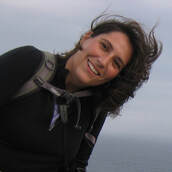
Ana Gabela
Joined 2023
Consultant
Ana works as a consultant with scientists across many fields optimizing their work structure and providing support for the entire research team. She is a biologist and currently is a digital nomad.
Joined 2023
Consultant
Ana works as a consultant with scientists across many fields optimizing their work structure and providing support for the entire research team. She is a biologist and currently is a digital nomad.
Alumni
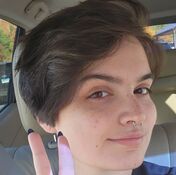
London Willson
2022-2023 Formerly: PhD student Current Position: PhD student at UConn working with Jon Trump 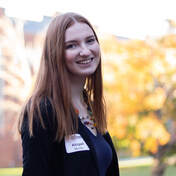
Abigail Moran
2020-2023 Formerly: undergraduate researcher at UConn Current Position: Graduate student at Columbia University in the Department of Astronomy Abigail works with the Gaia database to identify the binary companions of millisecond pulsars. She is also creating a data release of pulsar timing based accelerations. I hope to use these measurements of the acceleration of the Milky Way to map dark matter in the local galaxy. Google Scholar Page |
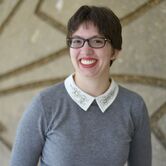
Deborah C. Good
2021-2023 Formerly: postdoctoral scholar at UConn & CCA Current Position: Faculty at University of Montana Dr. Deborah C. Good is an expert in pulsar timing. She is playing a leading role in data combination for the International Pulsar Timing Array’s third data release — IPTA DR3. She is also an expert in fast radio bursts. Deborah is a full member of NANOGrav and is a core member of the timing working group. As a doctoral student at the University of British Columbia, she was a key member of the CHIME/FRB and CHIME/Pulsar teams, including creating the first NANOGrav-CHIME/Pulsar data combination. Google Scholar Page 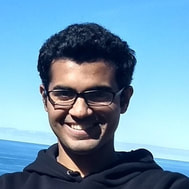
Siddarth Mohite
2021-2022 Formerly: graduate student researcher, joint with the Flatiron Institute Current Position: Research Scientist, LIGO Siddarth is interested in multiple aspects of gravitational-wave astronomy. For his graduate studies, he focused on uncovering the population properties of merging compact binaries observed by LIGO and their associated electro-magnetic counterparts. As a Flatiron Research Analyst, working with Chiara, the focus was on the contribution of eccentric binaries to the gravitaional-wave landscape of supermassive black hole binaries. Currently, he is a Research Associate at UWM working in the LIGO Computing group. Google Scholar Page |
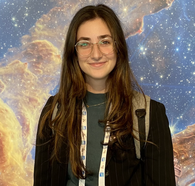
Nicole M. Khusid
2020-2022 Formerly: undergraduate researcher at UConn Current Position: PhD Student, Stony Brook University Nicole is interested in how strong gravitational lensing can be used as a tool to improve continuous nanohertz GW detection prospects with future PTAs, as well as a means of probing SMBHB dynamics by better resolving their EM counterparts. As a doctoral student, she is now switching focus to higher frequency GWs in the LIGO band, particularly analyzing the measurability of different quasinormal modes in ringdown signals. Google Scholar Page |
